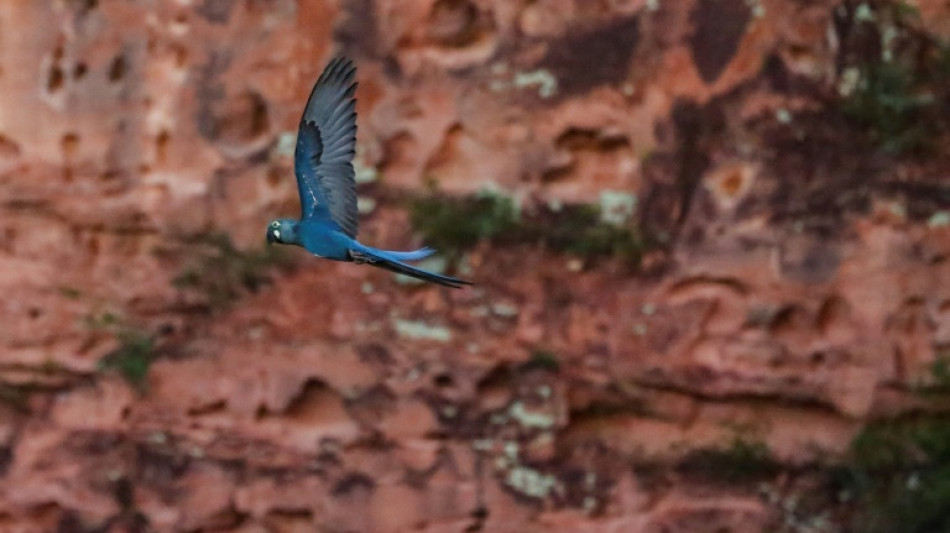
-
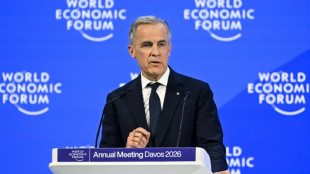 World order in 'midst of a rupture': Canada PM Carney tells Davos
World order in 'midst of a rupture': Canada PM Carney tells Davos
-
Senegal's 'historic' AFCON champs honoured with parade, presidential praise

-
 Audi unveil new car for 2026 Formula One season
Audi unveil new car for 2026 Formula One season
-
Man City humiliated, holders PSG stumble, Arsenal remain perfect

-
 Vinicius, Real Madrid need 'love' not whistles: Bellingham
Vinicius, Real Madrid need 'love' not whistles: Bellingham
-
Late Suarez winner stops Champions League holders PSG in Lisbon

-
 Frank seeks Spurs 'momentum' after beating Dortmund
Frank seeks Spurs 'momentum' after beating Dortmund
-
Jesus' 'dream' brace at Inter fires Arsenal into Champions League last 16

-
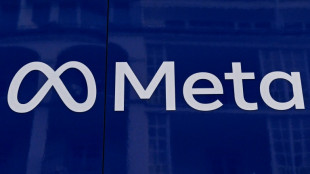 US regulator appeals Meta's court victory in monopoly case
US regulator appeals Meta's court victory in monopoly case
-
Netflix shares fall as revenue appears to stall

-
 Tottenham beat 10-man Dortmund to hand Frank stay of execution
Tottenham beat 10-man Dortmund to hand Frank stay of execution
-
Mbappe, Vinicius help Real Madrid thrash Monaco in Champions League

-
 Men's Fashion Week kicks off in Paris with Louis Vuitton show
Men's Fashion Week kicks off in Paris with Louis Vuitton show
-
Jesus fires Arsenal past Inter and into Champions League last 16

-
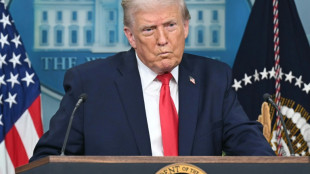 Muted anniversary: Trump marks first year back with grievances
Muted anniversary: Trump marks first year back with grievances
-
Humiliated Man City have to 'change the dynamic': Guardiola
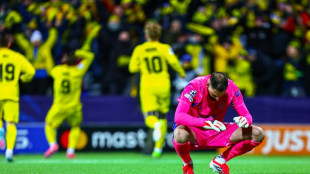
-
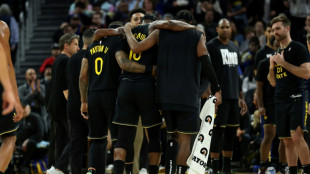 Golden State's Butler out for season with ACL injury: agent
Golden State's Butler out for season with ACL injury: agent
-
Venezuela woos US oil majors with new investment czar
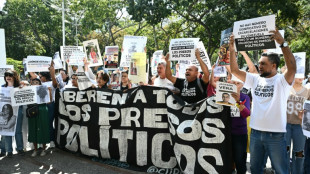
-
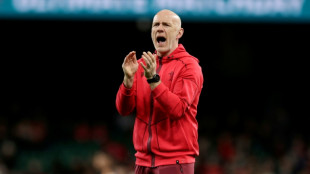 Wales Six Nations strike threat just 'speculation' for Tandy
Wales Six Nations strike threat just 'speculation' for Tandy
-
Syria government agrees new truce with Kurdish forces

-
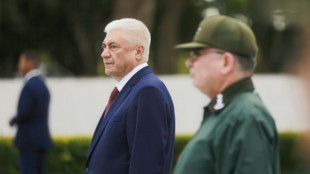 Russian interior minister in Cuba, which faces pressure from Trump
Russian interior minister in Cuba, which faces pressure from Trump
-
US finalizes rule for deep-sea mining beyond its waters
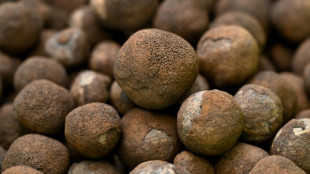
-
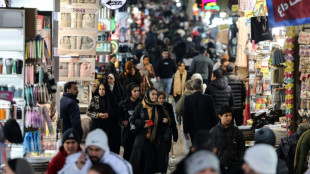 Iran protest crackdown latest developments
Iran protest crackdown latest developments
-
Muted anniversary: Trump marks first year back with familiar grievances
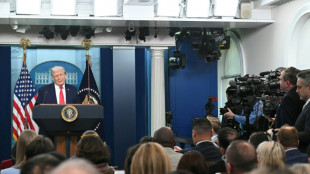
-
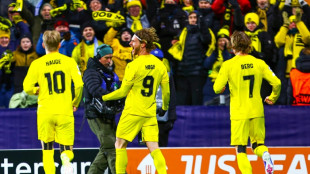 Man City stunned by Bodo/Glimt in epic Champions League upset
Man City stunned by Bodo/Glimt in epic Champions League upset
-
Cooler temperatures offer respite for Chile firefighters
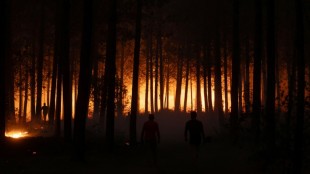
-
 Scientists plan deep-sea expedition to probe 'dark oxygen'
Scientists plan deep-sea expedition to probe 'dark oxygen'
-
Howe calls on Newcastle to use spirit of Robson to inspire win over PSV

-
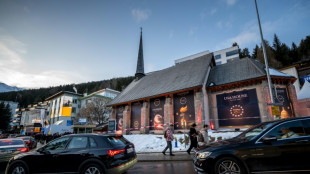 Massive US presence makes its mark on Davos
Massive US presence makes its mark on Davos
-
Ter Stegen to join Girona on loan: Barca coach Flick

-
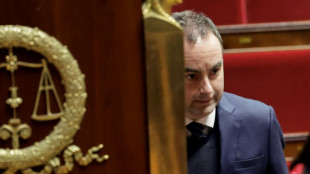 France PM forces part of budget through parliament without vote
France PM forces part of budget through parliament without vote
-
Scotland boss Townsend picks veterans Gray and Cherry for Six Nations

-
 Record try-scorer Penaud faces French axe for Six Nations
Record try-scorer Penaud faces French axe for Six Nations
-
UK approves plans for Chinese mega-embassy in London
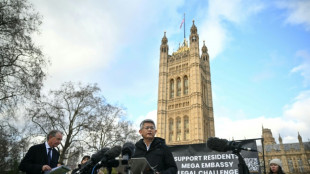
-
 Rosenior keen to build winning ties with 'world-class' Fernandez
Rosenior keen to build winning ties with 'world-class' Fernandez
-
Dakar delights in Senegal parade honouring AFCON champions
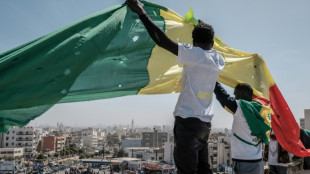
-
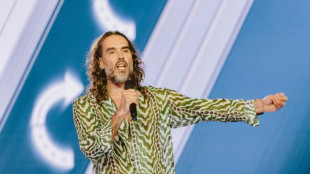 UK comedian Russell Brand in court on two new rape charges
UK comedian Russell Brand in court on two new rape charges
-
France set to face New Zealand with second-string squad

-
 Eyeing China, EU moves to ban 'high-risk' foreign suppliers from telecoms networks
Eyeing China, EU moves to ban 'high-risk' foreign suppliers from telecoms networks
-
Struggling Suryakumar will not adapt style to find form before T20 World Cup

-
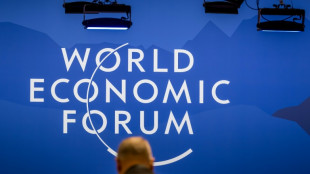 World stocks sink, gold hits high on escalating trade war fears
World stocks sink, gold hits high on escalating trade war fears
-
Easier said than done for US to apply tariffs on single EU states
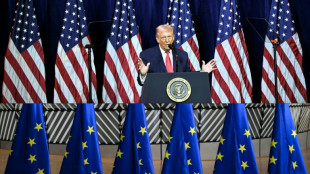
-
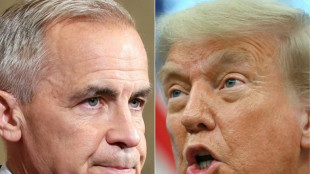 Canada military models response to US invasion: report
Canada military models response to US invasion: report
-
Salah returns to Liverpool training after AFCON

-
 Milan menswear shows add bling with brooches
Milan menswear shows add bling with brooches
-
Scotland recall Gray, Cherry for Six Nations

-
 Scheib storms to Kronplatz giant slalom victory as Brignone impresses in World Cup return
Scheib storms to Kronplatz giant slalom victory as Brignone impresses in World Cup return
-
Chagos Islands: international dispute and human drama

-
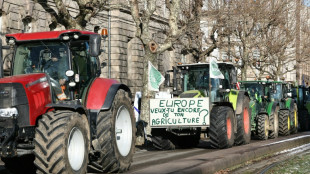 Thousands of farmers protest EU, Mercosur trade deal ahead of vote
Thousands of farmers protest EU, Mercosur trade deal ahead of vote
-
Men's Fashion Week kicks off in Paris with tributes for Valentino


Brazil faces dilemma: endangered macaw vs. wind farm
A wind farm in northeastern Brazil sounds like a welcome climate-friendly energy solution, but it is causing controversy over another kind of environmental worry: the impact on the endangered Lear's macaw.
Home to more than 90 percent of Brazil's booming wind-power industry, the northeast is known for strong, steady winds that President Luiz Inacio Lula da Silva wants to harness to power a green-energy revolution.
The region has drawn the interest of French renewable energy company Voltalia, which broke ground last year on a 28-turbine, 100-megawatt wind farm in semi-arid Canudos county, in the state of Bahia.
But the project soon came under attack when it emerged that the enormous turbines, with their 120-meter (nearly 400-foot) diameter blades -- a known threat to birds in flight -- were being built in a nesting region for the Lear's macaw, a bright blue parrot also known as the indigo macaw, or by its scientific name Anodorhynchus leari.
Named for 19th-century English poet Edward Lear, the birds have dwindled to an estimated population of no more than 2,000 in the wild, as farming and logging have vastly reduced their habitat.
The wind farm is "very risky," said Marlene Reis, of the Lear's Macaw Gardens Project, an organization trying to save the species.
"It could considerably increase the risk of extinction," she told AFP.
And the damage "could be irreversible, especially for these iconic macaws, who only live and reproduce in this region."
A federal court halted the final stage of construction on the turbines in April, revoking Voltalia's permits.
"It cannot be considered a low environmental impact" project, given the proximity to an endangered bird species, the court ruled, ordering further impact studies and consultations with local communities.
Voltalia has appealed the decision.
"The potential environmental and social impacts have already been dealt with exhaustively," Voltalia's country manager for Brazil, Nicolas Thouverez, told AFP.
The impact studies required by state authorities have shown the turbines "in no way endanger the conservation" of the Lear's macaw, he said.
"They demonstrated the environmental viability of the project."
The company has proposed reducing risks by painting the turbines to make them more visible to birds, as well as fitting the macaws with GPS trackers and installing technology that immediately stops the blades turning when they fly over.
- 'The name of progress' -
Brazil is a world leader on green energy.
It has the largest percentage of clean electricity in the G20 group of nations, at 89 percent.
Lula, who took office in January, has vowed to expand that further still.
Mines and Energy Minister Alexandre Silveira said recently that Lula wants to turn Brazil's impoverished northeast into the "biggest renewable energy breadbasket in the world."
Silveira has announced plans to install up to 30 gigawatts of clean energy production capacity in the northeast, mainly wind and solar.
The total investment could reach 120 billion reais ($24 billion).
But Voltalia offers a case study of the kind of opposition projects can run into on the ground.
In addition to the outcry over the Lear's macaw, the company faces resistance from small-scale communal farmers and cattle ranchers, around 7,500 of whom live in the area around the wind farm.
"The impact will be felt across the board," said Adelson Matos, 65, a white-bearded farmer who tends to goats, sheep, cows, chickens and fruit in the nearby village of Alto Redondo.
The wind farm is noisy, draws vehicle traffic at all hours, and has altered rain and wind patterns with its enormous structures, Matos complained.
"It breaks all harmony with the natural habitat," he told AFP.
"All in the name of progress," he said bitterly.
J.Horn--BTB




